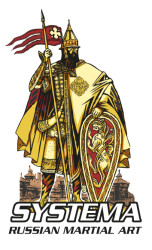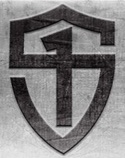I was making some random notes in my training journal when these thoughts just starting flowing off the pen. As I view the resultant list as it materialized, I realize it is indeed a collection of many of the things I have learned, but it is also an homage to the teachers I have had the great fortune to learn from over the years, including Martin Wheeler, Dr. Mark Cheng, Sifu Jeff Jones, Guro Dan Inosanto, Vladimir Vasiliev, Mikhail Ryabko, Sifu James Whalen, Master Jesse Tsao and Richard Crane Sensei. More recently I must include Master Jon Engum and Al Kavadlo – although the timeframe is shorter, the impact has been huge. There are many others, but these are the teachers that have had the greatest impact on me.
This list is in no particular order; I kept the same sequence as it rolled off my pen.
- Breathwork is fundamental to any movement practice.
- Mastering your breathing leads to major performance, health and even spiritual growth.
- Quality is more important that quantity.
- Listen to your body. No – really listen to your body.
- In most cases, strength has little to do with size.
- There are many types of strength.
- Strength and movement are not contrary capabilities.
- Mobility is as – if not more – important than strength.
- Attaining the ability to apply the correct balance of tension and relaxation at any given moment for the task at hand is a worthy goal – and it could take a lifetime to achieve.
- I still love martial arts as much today as I did 35 years ago – maybe more.
- I have been blessed to meet, learn from and work with some incredible teachers, coaches, instructors, and fellow practitioners. And they are all also great human beings. No coincidence.
- Occasional pressure testing is essential for honest growth. But this must be balanced with a continuous reinforcement of the fundamentals.
- Planning and practice/rehearsal are necessary for success. But also be prepared to alter plans at any given moment.
- I believe principle-based systems offer the best methodologies – but exploration of techniques is also necessary to reinforce the principles.
- It is important to honor your teachers and respect their traditions – but you must find your own Path.
- Dogma is dangerous.
- “Check your ego” is an often-used phrase. But you must know how to do this properly; it is more difficult than most realize and requires deep and honest introspection.
- If something is labeled as “real”, “realistic”, “reality based”, “real life”, etc. – it probably isn’t.
- The single most important element in a violent or high-stress encounter is the state of your psyche. All else is secondary.
- Understand this at a deep level: Why are you training in the system, method, school, practice, etc. that you are? What are your expectations and motivations? Be sure your training aligns with your spirit, core beliefs and goals.
- If you are doing it right – you will fail. That’s OK. Learn why you failed and find a way to improve.
- Keep showing up…
- Lastly: Don’t be an asshole. Karma works.



